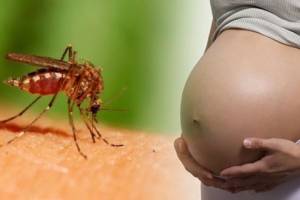TravelBug breaks down the Zika pandemic as it continues to spread:
In the Continental U.S.
This week The Texas Department of State Health Services (DSHS) announced the state’s first locally acquired case of a person infected with the zika virus, in Brownsville along the Gulf Coast.
Several months ago, Zika gained a foothold in the continental United States and (as of Nov. 23, 2016) 182 locally acquired cases have been reported in a few small areas of Miami-Dade County, Florida. The CDC has cautioned pregnant women to avoid non-essential travel to all parts of Miami-Dade County.
Fortunately, the average Aedes mosquito that transmits the zika virus will not travel more than about 500 meters during its lifetime.
The estimated range of Aedes mosquitoes includes all of the southern states in a swath from California through Arizona and Texas, most of the SouthEast and as far North up the East Coast as Connecticut. Researchers are careful to point out that the risk of Zika spreading to these areas depends on a range of factors. Click here to see the map.
The Rest of the Americas
The Zika epidemic in the Americas has spread to include essentially all of Central America (including Mexico), all of the Caribbean and almost all of South America.
The South Pacific
Zika is now endemic throughout many South Pacific islands, including Fiji, American Samoa, Marshall Islands, Micronesia, Papua New Guinea, New Caledonia, Samoa, Palau and Tonga.
Southeast Asia
Zika has become endemic in Singapore and according to the CDC, travelers are now returning from other areas of Southeast Asia with zika virus infection. The number of cases remains low enough that the CDC has not issued an official travel alert but is cautioning pregnant women about travel to these areas. Countries currently on the watch list include Brunei, Burma (Myanmar), Cambodia, Indonesia, Laos, Malaysia, Maldives, Philippines, Thailand, East Timor and Vietnam.
Click the CDC link to see: All Countries & Territories with Active Zika Virus Transmission
The CDC is now recommending that men who've possibly been exposed to the zika virus without developing symptoms should wait 6 months before trying to get pregnant with a partner or have condomless sex. This is much longer than the 8 weeks previously recommended, since Zika RNA has been isolated in semen up to 6 months after infection. The CDC defines possible Zika exposure as travelling to or living in an area where the virus is spreading actively, or condomless sex with someone who has travelled to or lived in such an area.

